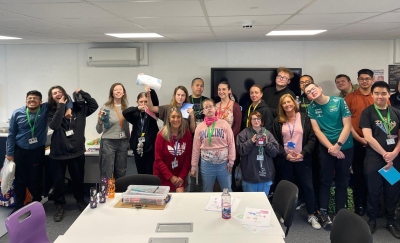Increasingly in the 21st century, new products and technology come along and completely change the way the world works. Just where would the world be without the invention of the all-encompassing smart phone?
But some products are more notable for the strange decision-making behind them and an ultimate lack of success.
For example, did you know about Apple’s The Newton, a device that was meant to change personal computing? Or what about Sony’s Minidisc and MD player, which quickly became an obsolete music format.
Here are SBF’s top 5 product failures, which will make you wonder just what the designers were thinking (or drinking!):
5) Baby Wee-Wee – Famosa
Guess what anatomical function this doll was designed to mimic.
The advert used to promote Baby Wee-Wee, featuring a child proclaiming how exciting it was seeing the doll’s penis move, was creepy enough but the doll takes it to a new level.
Although other dolls that can urinate exist, we’d guess very few have a disproportionately large penis that moves when tickled! Possibly not the greatest idea for a doll.
4) Minidiscs – Sony
Designed with the intention of rendering the CD obsolete, Minidiscs were meant to combine the portability of tapes with the technology behind CDs and higher sound quality.
But the timing of the launch was far from ideal. CDs were just being incorporated into “boomboxes” that could also play cassettes. MDs forced customers to make a choice between one and the other, unlike CDs.
MDs were also incompatible with data discs and so files could not be transferred or stored on a computer. Not such a wise decision in hindsight.
3) Arch Deluxe – McDonalds
In 1996, the fast-food giant decided to target a new demographic, specifically the ‘sophisticated and urban’.
Initially marketed by Fallon McElligott, a Minneapolis-based advertising agency, the $100 million ad campaign featured children being disgusted and grimacing at the sight of the burger, which featured a slab of bacon and secret mustard-mayonnaise sauce topping a quarter-pound of beef.
Adults weren’t quite as enraptured by this concept however.
McDonalds then reverted to using its signature mascot, Ronald McDonald, playing golf, pool and visiting clubs. However this still moved away from the family-friendly image it had cultivated for so long and the burger was discontinued quickly and branded a $100 million flop.
2) The Newton – Apple
Even the world’s biggest company has room for the odd product failure!
Back in 1993, Apple embarked on a campaign to change personal computing, a relatively new concept at the time.
Officially known as the MessagePad, but colloquially the Newton, it was sold for the extortionate price of $700 - $1000. Its handwriting recognition software, branded by some as ‘unprecedented’, was also highly inaccurate and frustrated many of its users.
It was discontinued 5 years later in 1998, but Apple will claim that it did inspire the PDA craze that followed!
1) New Coke
SBF’s favourite product failure is Coke’s ludicrous decision to change the iconic Coca-Cola recipe.
In the early 1980s, Pepsi Coke was making up ground on Coca-Cola in the battle to be king of the soft drink, as its sweeter flavour was winning over Americans. Consequentially Coke decided something had to be done to reverse its fortunes.
April 1985 saw New Coke hit the shelves with its “smoother, rounder yet bolder” taste than the original formula. Coke also halted production of the original formula, what would prove to be a big mistake!
The public were outraged by the decision and the new product was boycotted by many.
Only a few months later, the original formula was brought back to go alongside New Coke. New Coke was pulled in the early 1990s and Coca-Cola learnt a valuable lesson on branding.
Knowledge for Small Business and Large Enterprises
At Skipton Business Finance, our invoice finance facilities, such as our UK-leading invoice factoring and invoice discounting solutions, grow in line with your business.
We are pioneers in not just providing invoice factoring and invoice discounting to businesses up and down the country, but also in helping our clients grow and become better.
That's why we have a dedicated section of our website that focuses on offering free knowledge on a range of topics that you may find helpful for your business.










